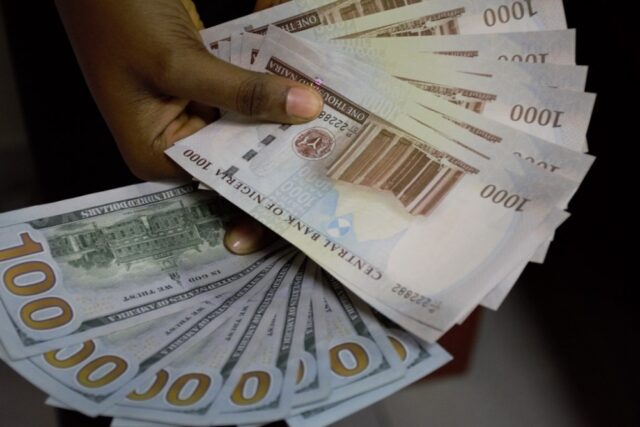By Uche Amunike
Nigeria’s foreign reserve has declined to $32.28 billion which is the lowest it has ever been since September 25, 2017, six years ago, when it was $32.28 billion, as the Central Bank intensifies efforts to save the Naira.
On March 18, Nigeria’s foreign reserve declined by 6.2%, arriving at a loss of $6.2 billion, after the Naira began its rebound from record-low levels against the dollar to $32.57 billion as of Monday, based on the current available data from the Central Bank of Nigeria (CBN).
In early April, the country’s foreign reserve stood at $33.57 billion, but eventually fell to $32.6 billion by April 12.
This was sequel to CBN’s attempt to save the Naira through different interventions like increasing interest rates to 24.75 percent and managing foreign exchange trades. It increased its intervention in the foreign exchange market with sales at both the official market, as well as to BDC operators who trade dollars in the streets.
The CBN, which sells $10,000 to each BDC on a weekly basis, instructed them to only sell at a spread of 1.5 percent, which amounts to N1, 117 per US dollar. Note that since the Central Bank commenced selling to the BDCs in February, the BDCs have set a defacto floor for the Naira in the black market.
In March, the apex bank announced that they had cleared a backlog of $7 billion, as far back as the beginning of 2024 which accumulated over the years, as the CBN placed its currency against the dollar, leading to a scarcity of foreign currency that deterred foreign portfolio investment. It is however not clear how much dollar debt the CBN retains on its books.
According to a Professor of Economics and Public Policy, Akpan Ekpo, the CBN has managed a float system which strives to ensure that supply and curtail demand is not sustainable in the long run. He further stated that the apex bank needs to be cautious about how it depletes Nigeria’s foreign reserve, considering that its main source is oil revenue.
He further harped on the need for Nigeria to manufacture non-oil goods and services, export them, while also getting foreign exchange, instead of depending on oil income.
Meanwhile, a report by the Organization of Petroleum Exporting Countries (OPEC) showed that in March, Nigeria’s production of crude oil fell for the second time. It stated that in February, oil production was down from 1.32 million barrels per day, to to 1.23 million barrels per day in March. This is according to the data gathered from their most recent monthly oil market report.
On their part, a recent projection by the International Monetary Fund (IMF) showed that Nigeria’s foreign reserves are expected to reduce significantly, by falling to $24 billion in 2024. The IMF expects to face challenges between 2024 and 2025, for the country’s financial account, exacerbated by the absence of new Eurobond issuances, important repayments of existing funds and Eurobonds amounting to $3.5 billion, as well as continued portfolio outflows.







